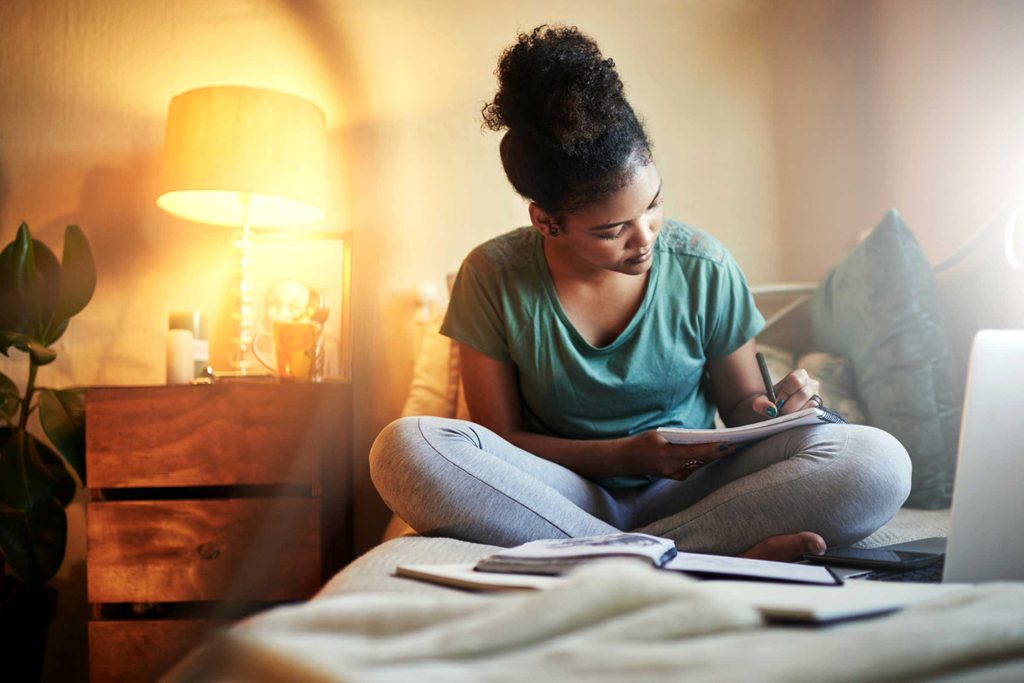The Single Best Way to Ensure a Better Night’s Sleep, Starting Tonight
Updated: Dec. 23, 2016
Insomnia plagues us all at one point or another, but that doesn't mean it has to continue. Experts have found that one of the simplest ways to ensure sleep is setting a bedtime.

Before you set your morning alarm and get cozy under the covers, there’s one thing you may want to consider. Getting a good night’s sleep may seem impossible with packed schedules and the endless connectivity of smartphones. But experts are saying that the answer to better sleep is simply this: setting a bedtime and sticking to it.
Choosing a bedtime requires you to be aware of how much sleep your body actually needs. One in three American adults is not getting the recommended amount seven to nine hours of sleep each night, according to the CDC. Despite what many may think, it’s highly unlikely that your body needs less than seven hours of sleep to thrive, says Rami Khayat, MD, a physician in the division of pulmonary, critical care and sleep medicine at The Ohio State University Wexner Medical Center in Columbus, Ohio.
“People don’t recognize how much sleep they actually need,” Dr. Khayat says. “When you’re choosing a bedtime, examine how much sleep you get during holidays, vacation, weekends or time off from work. If you’re sleeping in much later on weekends and you’re waking up feeling lethargic or you’re forced to curtail evening activities due to sleepiness, then you need more sleep.”
Sticking to a bedtime and a waking time can greatly improve your sleeping, research shows. Though many adults are part of the workforce and can’t necessarily change the time they wake up, one can change their evening habits to accommodate an earlier bedtime. In order to select a bedtime that will most benefit you, Dr. Khayat says to begin looking at how you spend your evenings. Here’s what highly successful people do before bed.
Begin shifting your bedtime rituals to 15 or 30 minutes earlier, and continue to shift them forward by a half hour until you find the bedtime that works for you. Before you begin rituals to help you sleep, like a bath or writing thoughts in a journal, it’s important to minimize screen time and wind down your mind and body.
“Consider how soon you’re falling asleep,” Dr. Khayat said. “If you’re lying in bed watching television for awhile that’s a big difference between actual sleep time and bedtime.”
Smartphone apps can help you track how much sleep you’re getting and if your new bedtime is working or do as the New York article suggests and ask a partner to be your “sleep cop,” making sure you’re in bed and awake by the right time.
When the weekend rolls around and you participate in evening activities or think about sleeping in, Dr. Khayat advises that sticking to your bedtime and waking time within an hour will not disrupt your sleeping habits. Here are more secrets to a better night’s sleep from sleep docs themselves.
